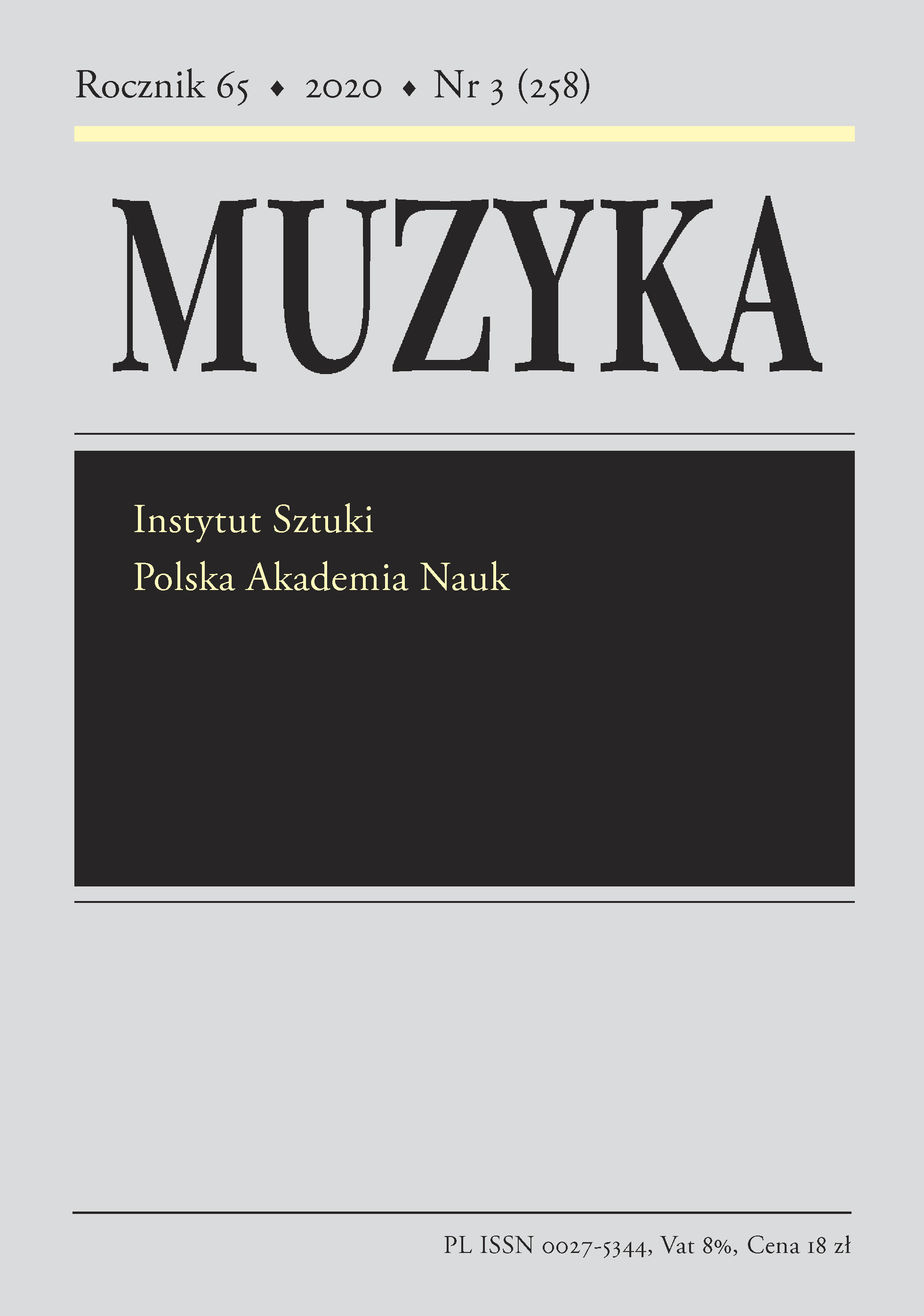„Composing for the films” Theodora W. Adorno i Hannsa Eislera jako krytyczna refleksja o muzyce filmowej
Composing for the Films by Theodor W. Adorno and Hanns Eisler as Critical Commentary on Film Music
Author(s): Joanna KwapieńSubject(s): Music, Aesthetics, Film / Cinema / Cinematography, Sociology of Art
Published by: Instytut Sztuki Polskiej Akademii Nauk
Keywords: film music; rationalisation; fetishisation of music; mass culture; critical theory; Hanns Eisler; Theodor W. Adorno
Summary/Abstract: "Composing for the Films" is a unique book in film musicology. Published in 1947, it was a nearly immediate response to the fast developing Hollywood film industry. Though it was the product of a collaboration between two authors, Theodor Adorno and Hanns Eisler, for many years it was known only under the name of that latter artist. Despite its original concepts, it has never been analysed by Polish scholars.The first part of my paper focuses on the circumstances of writing this book and the history of its editions, which was made complicated by both authors’ difficult political situation. Critical theory, as adapted by Adorno for the study of film music, is the key to the concepts contained in this book. In my article, I distinguish four thematic segments in the authors’ commentary: a) criticism of cinematography as a manifestation of mass culture; b) criticism of composition technique in film music; c) criticism of traditional composition techniques and a discussion of the possible uses of new music in films; d) presentation of the dangers related to the use of new technologies in film music. Such a division of topics makes it possible for me to cover all the aspects discussed by the authors, and related to musicology, philosophy, economy, politics, and sociology. My analyses of Adorno and Eisler’s ideas has been extended so as to include Max Weber’s sociological concepts and Adorno’s notions of the fetish character in music, rationalisation, and regression of listening. I also present a survey of selected composition techniques still applied in film music today, which the authors describe as ‘bad habits in composition’.
Journal: Muzyka
- Issue Year: 65/2020
- Issue No: 3
- Page Range: 21-40
- Page Count: 20
- Language: Polish

